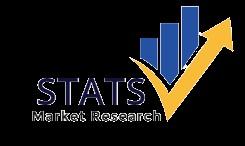














Thermoset plastics, or thermoset composites, are synthetic materials that strengthen when heated, but cannot successfully be remolded or reheated after initial heat-forming or molding. After thermosets are molded, the resulting parts offer protection against high operating temperatures, corrosion, and chemical resistance. These material property benefits allow molded thermoset parts to be used in a variety of aggressive and challenging end-use environments, from electrical applications to automotive powertrain and transmission components to products with outdoor element exposure. Using a thermoset molding process allows final parts and assemblies to remain dimensionally and chemically stable against elements such as moisture, high heat or operating temperatures, electric voltage, and chemicals or automotive fluids.
This report provides a deep insight into the global Thermoset Compounds for Vehicles Powertrain market covering all its essential aspects. This ranges from a macro overview of the market to micro details of the market size, competitive landscape, development trend, niche market, key market drivers and challenges, SWOT analysis, value chain analysis, etc.








The global Thermoset Compounds for Vehicles Powertrain market size was valued at US$ 3.45 billion in 2024 and is projected to reach US$ 4.89 billion by 2030, at a CAGR of 6.0% during the forecast period 2024-2030. CAGR of 6.0% (2022 – 2029)








•Bulk Molding Compound (BMC,unsaturated polyesters and vinyl esters)
•Phenolic or Phenolic Molding Compound
•Epoxy
•Diallyl Phthalate (DAP)


















•Sumitomo Bakelite
•IDI Composites International
( IDI )
•RTP Company
•SDK
•Lorenz
•Polynt
•Huayuan Group
•Mar-Bal
•Including or Excluding key companies relevant to your analysis.
























